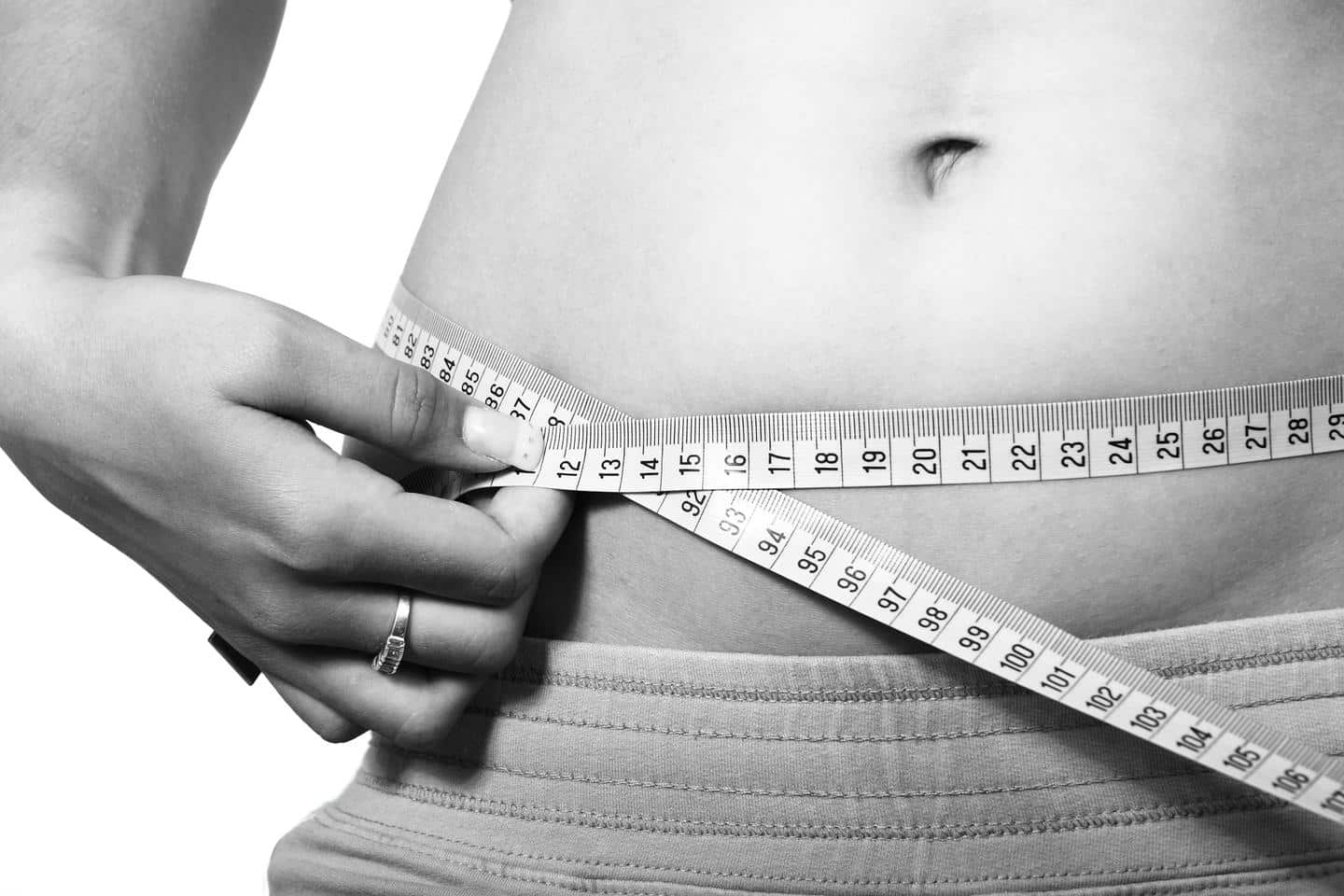The Unknown • • 13 min read
The Secret to Happiness That No One Wants to Admit

I spent my entire life searching for the secret to happiness.
I was fascinated by the topic, as I had been a self-described “victim” of depression for my entire adult life, and happiness always seemed beyond my grasp. I’m also a stubborn son of a bitch, and I truly believed I could find a cure to my problem without using chemicals to manipulate my brain.
I’d almost given up hope until I stumbled across a secret to happiness that was so simple, it actually made me angry that it wasn’t common knowledge.
I’ve since read about this magical “cure all” in several books and science articles, but it always seems relegated to the back pages, never really reaching the forefront of our collective consciousness. Probably because it’s a solution that no one wants to admit — especially people suffering depression.
I can already hear some people saying, “Yeah man, but you don’t know me. My life sucks so much and blah blah blah.” I used to say the exact same thing. That’s why you can trust me when I tell you this next bit of advice, which is the same advice I’d give myself if I could go back in time:
You need to shut the fuck up about your problems.

The Happiness Blindspot
We all have our psychological blindspots. Anorexic people think they’re fat. Victims of domestic abuse find excuses for their partner’s violent behavior. And, although it might sound crazy, you might actually be happier than you realize.
When I was depressed, I could never pinpoint the source. I often tried — blaming everything from a bad job to bad friends to bad weather — but I never wanted to take personal responsibility for my state of mind. Depression felt like something I couldn’t control; an emotional weight from an unknown source.
It’s a scary feeling, being depressed and not knowing why. On paper, my life looked awesome — I had a steady job, an amazing apartment, and I was only a two-minute walk from the ocean. By most standards, I was living a great life. Unfortunately, I wasn’t living by most standards; I was living by my standards, and my standards were pretty fucking stupid.
All I saw was the negative — rent prices going up every year, bumper to bumper traffic, Europeans who vacation in the U.S. and tip their waiters less than 15% (please read an etiquette book before you travel).
I was living a nice life, but I wasn’t happy. Here’s why:
I wasn’t trying to be happy.
This should fall into the “no shit” area of common sense, but a lot of you are probably making the same mistakes that I was:
I wanted to travel the world, but I wasn’t saving the money to do it. I wanted to be healthy and fit, but I didn’t eat well or exercise. I wanted be a writer, but I never actually wrote.
“If you don’t know what you want, you end up with a lot you don’t.”
— Chuck Palahniuk, Fight Club
Because I wasn’t focusing my attention on the things I was passionate about (the good stuff), my mood was left to whatever random circumstances I had to deal with at any given moment. And there’s A LOT of bullshit to deal with in any given moment.
Happiness was right in front of me; I just couldn’t see it. I needed to be slapped by the hard, calloused hand of truth.
The Truth About Happiness
“A man’s as miserable as he thinks he is.” — Seneca
To paraphrase the sage wisdom of many great philosophers: “Shit happens.” And yet, today more than ever, people feel entitled to happiness. They believe that they should live in a universe where nothing goes wrong, everything goes according to plan, and no one is an asshole.
It’s a beautiful dream, but it’s time to wake up to reality.
This is a difficult truth to accept, because we all know at least one person — a relative, a friend, a co-worker — who’s always happy. You know the type: they never complain, they’re never in a bad mood, and they’re always smiling. There’s a word for these people:
Annoying.
I’m kidding, but it often feels that way. It feels that way because we’re jealous. We want what they have. We want to know what they know. If you’re as terrible as I am, you may have even wished you were as stupid as them, because only someone that stupid could be so happy. I can still hear my old self complaining: “Just look around! Life is boring and meaningless! Can’t they see? The world sucks! [pause for dramatic effect] …Doesn’t it?”
No. It really doesn’t, and they’re not stupid; they’re simply more fortunate.
Being happy is easier for some people, just like how being thin is easier for some people. Some people can eat three Big Macs, a bag of Cheetos, and a half dozen Twinkies in one sitting and they don’t gain an ounce. Other people aren’t so lucky — they take one bite of a Kit Kat bar, pass out for an hour, and wake up a full dress size bigger. Life’s an unfair bitch.
Truth be told, those people can stay thin, but it takes a lot more effort, a lot more work, and a lot more willpower on their part.
And, as Dr. Sonja Lyubomirsky, author of The Myths of Happiness, explains:
“You can make yourself happier just like you can make yourself lose weight. But like eating differently and going to the gym faithfully, you have to put in the effort every day. You have to stay with it.”

And that’s the true secret to happiness that no one wants to admit:
“Happiness can be learned. It just takes a little bit of willpower and A LOT of daily practice.”
No one is responsible for your own happiness but you. If you want to be happy, first you have to choose to be happy.
The secret to happiness isn’t magic; it’s practice. So here’s the real question: How does one practice happiness?
Learn From Your Elders
Dr. Robert Cialdini (pronounced: chahl-DEE-nee) is one of the world’s leading persuasion experts and author of one the best psychology books of all-time, Influence: The Psychology of Persuasion. If you’re wondering why I’m referencing a persuasion expert while discussing happiness, it’s because, according to him, you can persuade yourself into being happy.
In his new book, PRE-SUASION: A Revolutionary Way to Influence and Persuade, Cialdini cites one study explaining why senior citizens — despite being weaker, unhealthier, and less energetic than their youthful counterparts — are, on average, much happier.
The answer lies in their attention management skills.

There’s no need to sugarcoat it — senior citizens have less time to be alive than most of us. They’re very aware of this fact, which is why they choose to not waste their remaining years dwelling on negative thoughts, moods, and memories.
As Cialdini explains: “When it comes to dealing with all the negativity in their lives, seniors have decided they just don’t have time for it, literally.”
Occasionally you’ll meet a crotchety old curmudgeon with nothing but bitterness in his tired, gray heart (Hi Grandpa!), but on average, old people are happier than young people because they’re better at focusing their attention on the positive.
This raises an interesting question. As Cialdini himself asks:
“Must we wait for advanced age to bring about a happy outlook on life? According to research in the field of positive psychology, no. But we do have to alter our tactics to be more like seniors’. Luckily for us, someone has already prepared a list of ways to go about it.”
That person is Dr. Sonja Lyubomirsky, whom I quoted earlier. She believes the secret to happiness lies in specific daily activities. The top three on her list require nothing more than refocusing attention:
1. Count your blessings and gratitudes at the start of every day, and then give yourself concentrated time with them by writing them down.
2. Cultivate optimism by choosing beforehand to look on the bright side of situations, events, and future possibilities.
3. Negate the negative by deliberately limiting time spent dwelling on problems or on unhealthy comparisons with others.
The list seems easy, right? Believe me, it’s not.
The vast majority of you will not even attempt to incorporate one of these activities into your life, let alone all three.
If you’re already happy, then it’s no problem. But if you’re not, then it’s a major problem. Take my advice, again, not as a “medical professional,” but as your friend:
Her list works. I know because I finally tried.
For the Skeptical: Self-Help vs. Self-Delusion
I have a love-hate relationship with self-help, having compared it to a heap of bullshit containing a few gold nuggets, but it’s important to remember — even a chunk of gold can look like a turd if it’s not cleaned up.

Dismissing sound advice without actually practicing it is like holding a hunk of gold and thinking it’s a turd.
When I was at the low-point of my depression, I read a ton of self-improvement books, which contained many of these gold-nuggets-disguised-as-turds. Most of the advice was so simple that it sounded like vapid platitudes:
“Meditate… Exercise more… Make a gratitude journal… Look at yourself in the mirror and say ‘I love you.'” And so on.
It all felt so… lame.
“Really? A gratitude journal?! Should I tie my hair in pigtails and pee sitting down while I’m at it?”
Those are the honest-to-God thoughts my mind would feed me. And for a long time, I ate ’em up like candy. I liked my mind. I wanted to believe I was my mind. It wasn’t until years later that I finally realized the truth:
My mind was the source of my depression, and I needed to tell it to fuck off.
It’s a liberating feeling, telling your mind to fuck off, but it’s easier said than done. The mind stalks you like a crazy ex-lover, and unless you get a restraining order, it’s going to keep coming back.
And that’s where Dr. Lyumbomirsky’s list comes into play. Her list is like filing a restraining order against the worst parts of your mind, and you need to turn that list into an iron-clad contract.
The Happiness Contract
Do you want to live a happier life? If you do, even just a little, then hold yourself accountable and do the following exercise. It takes less than a minute, but it will greatly improve your sense of meaning and fulfillment both now and in the many years to come.
Today, you will make a contract with your future self.
If you wait until tomorrow, you’re not yet ready/willing to change. And that’s fine. To each his/her own. But if you truly want to improve your mood, energy, and overall outlook on life, then you need to take action RIGHT NOW. *cue the Van Halen song*
Step 1: The Promise
Grab a pen and paper and write the following:
“I, [your name], promise to make a daily effort to improve my mood and cultivate a positive attitude toward my life and the lives of others.”
Boom! Step one is accomplished, but only if you actually wrote the previous sentence down. If you only read the sentence in your head and said, “Okay, I will,” then you really haven’t done anything.
There is immense psychological power in writing things down. If you want to know the science behind it, read chapter three in Cialdini’s Influence, which goes into brilliant details regarding the principles of commitment and consistency. I’ll state it again: If you don’t write it down, you’re not ready/willing to change.
Sign and date it. Put it somewhere where you are sure to see it at least once a day. I didn’t do this for the longest time because I was afraid others would judge me if they saw it. That damn ego again!
Put your ego aside. If others judge you, it’s because they’re miserable people. You’re making an effort and they’re not. Fuck ‘em.
Step 2: The Practice
You still have your pen and paper, right? Good. Step 2 is just as easy as Step 1. Write down the following:
“When I wake up in the morning, I will immediately write down one thing that I’m grateful for.”
If you’re able to write down three things, even better, but only one is the daily requirement. Best to keep a notebook bedside so it’s ready to go. Bonus points if you do the same exercise before you go to sleep.
This is a habit that takes less than 30 seconds a day. It’s incredibly easy to do, but also very easy to forget to do. That’s why you need a plan. My advice — put the notebook on top of your alarm clock so it’s the first thing you see in the morning (and the last thing at night). You may also want to look into the 5-Minute Journal.
This simple act can be life-changing. If you’re skeptical, just give it a try for one month. Then, at the end of your 30 days, message me and let me know how great you feel here. :)
Step 3: The Plan
Happiness isn’t a sprint; it’s a marathon.
An obese person doesn’t get in shape by running a marathon the next day. They begin by taking small actions day after day after day, improving little by little. A little more veggies; a little less junk food. A little less sitting; a little more walking. And if they stick to this simple plan for a few months, they’ll begin to see change.

Don’t be one of those people who stops exercising because they don’t see results after two weeks. I wrote in my gratitude journal every day for two months before I began to notice any real change, but it finally happened. During a conversation with my parents, my mom said, “You seem so much happier! What have you been doing?”
It was a great feeling, like finally being asked, “Hey, have you lost weight?” after months of training. Change happens, but it takes time.
Stick with it. Start with the small steps. Crawl before you walk. Walk before you run.
Step 4: Extra Credit (i.e. Running)
Step 1, 2, and 3 are the bread and butter — simple but filling. You can live off them, but a lot of you will prefer to have some meat and veggies to go with it.
These are the advanced steps. This is where things get personal. Begin with a self-inventory by answering the following questions:
When do I feel most alive? What am I passionate about? What are my best memories? What makes me sad? What makes me angry? When do I lose control of my emotions? Which friends/family/co-workers bring positivity and joy to my life? Which ones add negativity and strife? What daily activities add value to my life? What daily activities bring pain and suffering?
And be honest. There will likely be some harsh truths you’ll have to confront. Don’t be afraid to dig deep. You may find that some activities that you think bring you pleasure actually bring you pain (drug addictions are a common example). Now here’s the tricky part:
You need to devise a plan to eliminate the things that breed negativity in your life, and begin to add activities that create value. The best way to do this is by using If/When-Then statements.
If/When-Then statements are magical little nuggets that are scientifically proven to increase your likelihood of achieving any goal. The theory behind them is simple:
Having a goal isn’t enough, you need to have a plan in place for when things gets difficult. This is true for creating (or breaking) any habit, and habits are the key to achieving anything.
If/When-Then statements for happiness might look like the following:
“If my parents start talking about politics, then I will quickly change the subject.”
“When an asshole cuts me off in traffic, then I will immediately think about my favorite memory instead of getting upset.”
“If my boss blames me for something that isn’t my fault, then I will apologize and move on with my life (rather than waste time arguing a point they won’t understand).”
I’d go into more details, but an entire book could be written on this step alone, and I don’t want to detract from the main message:
Start small and work your way up. For now, a written commitment to become happier and a daily practice of writing in a gratitude journal is enough.
Once you start to gain momentum, then you’re allowed to push yourself harder.
The Secret to Happiness
The secret to happiness is practice, paired with responsibility and accountability. Yeah, it’s not a sexy answer, which is why no one wants to admit it.
Put more simply, the secret to happiness is you.
We live in a culture that celebrates results rather than the effort it takes to achieve results. It’s glamorous to just “be” a certain way, but prodigies are extremely rare in this world. Most people — whether skinny, fat, rich, poor, happy, sad, — are the way the are because of the small actions they make day after day.

I can honestly say I haven’t felt severe depression for over two years now. That’s not to say that I haven’t had my down moments; I definitely have. But when you make positivity a daily goal, you’re better able to recognize beauty in both the peaks and the valleys, and life has plenty of both.
Here’s to a happy life!
Want to go even deeper? Want to explore the nature of happiness, hunger, pain, comfort, sex, truth, consciousness, and self?
Want to finally form positive, life-changing habits?
Then our new course was designed for you.
30 Challenges to Enlightenment



![Seneca’s Groundless Fears: 11 Stoic Principles for Overcoming Panic [Video]](/content/images/size/w600/wp-content/uploads/2020/04/seneca.png)







